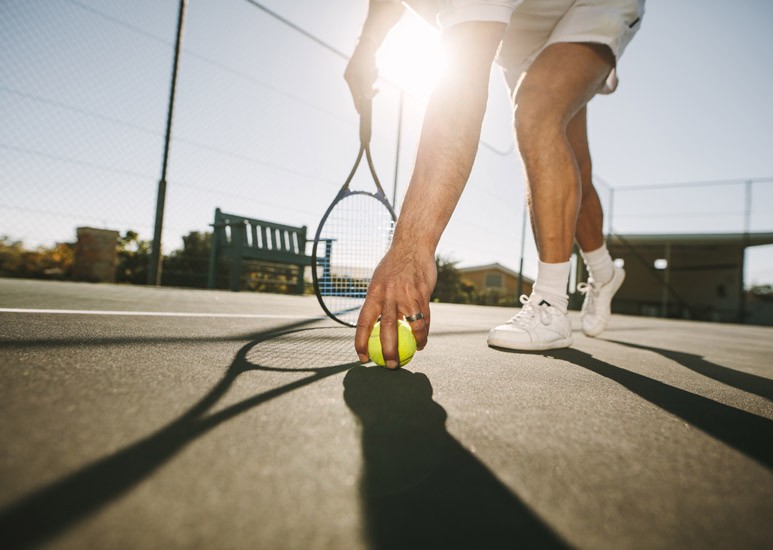Tennis is one of the many sports with no age bias. As much as you want to practice your serves and backhands—you can. Before you lace up your tennis shoes and open a new set of Wilsons, don’t forget to prepare your body for the match, too.
Warm Up Your Wrists, Arms, Knees and Ankles
Warming up is a key part to performing any physical activity for a long duration of time. In tennis, focus on warming up your wrists, arms, knees and ankles. These are areas of the body that, if not taken care of, can lead to repetitive-use injuries, the most familiar being tennis elbow.
Prep your arms, wrists, and ankles by simply rotating them. To prep your knees, try lunges or knee-high kicks from half-court and back. After your match, stretch your entire body.
“Before each practice, we warm up by rotating our ankles and wrists, swinging our arms to engage the shoulders, and performing knee-high kicks and lunges from one end of the court to the other,” says Christopher A. DeFalco, MD, orthopedic sports medicine/shoulder specialist with Community Physician Network.
Be Properly Equipped
Not only can poor play attire hurt your performance, but your body too. Those tennis shoes mentioned above? Make sure they’re actually shoes meant for tennis that account for lateral movements. Before picking any ol’ racket, or the top-seller, make sure it’s weighted appropriately for your comfort. Improper balance of weight can cause a negative impact on your arm, elbow, and shoulder.
If you’re dealing with agitation in your tendons or you notice swelling or inflammation, take time to rest and stretch more than usual. Braces or splints can further relieve discomfort, but check in with your primary care physician to understand if it’s the right remedy for you.
Don’t “Power Through” or Overdo It
Enduring pain is never a good idea. Repetitive-use injuries like bursitis, tendonitis, and tennis elbow must be addressed. If not taken care of, these muscle conditions can be prolonged and seep through to your daily life. Picking up a gallon of milk could become painful. See a sports medicine physician to understand the best way to heal and prevent further strain.
Feel free to serve up this advice to your doubles partner. And don’t hesitate to contact a Community physician with any questions regarding the way you play. Or, if you’re looking for relief from joint pain, attend a free dinner seminar hosted by our joint replacement team. Register now.
